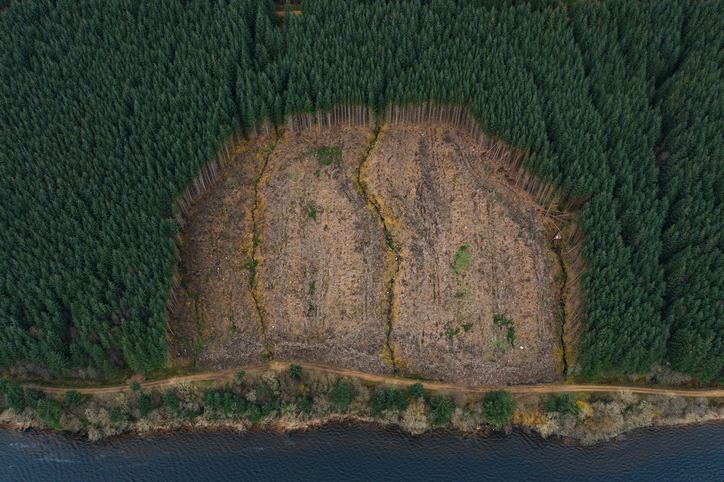The food and beverage industry heavily relies on carbon offsetting to compensate for emissions that cannot be eliminated within their own operations. Carbon offsetting involves buying carbon credits that fund projects like deforestation prevention, renewable energy, and tree-planting. However, a recent study published in Science suggests that many carbon offset schemes, particularly those aimed at preventing deforestation, significantly overestimate their effectiveness.
The study, led by the University of Cambridge and VU Amsterdam, analyzed 18 REDD+ projects across various countries. REDD+ projects, overseen by the UN, aim to curb deforestation by implementing practices that encourage forest preservation. These projects generate carbon credits based on estimated deforestation reductions. The researchers compared these projects to similar areas of forests not involved in REDD+ projects and concluded that the offsetting projects inflated their conservation impact through crude calculations.
Out of 89 million carbon credits generated by these offset schemes, only 6% (5.4 million) were associated with actual carbon reductions through preserved forests. More than 60 million credits came from projects that had minimal or no impact on deforestation. The researchers noted that these offset projects have already been used to offset three times more carbon emissions than their actual contributions to climate change mitigation. This issue is likely to worsen as most of these credits are yet to be sold.
The increasing popularity of carbon credit markets has led to a booming trade, with over 150 million credits originating from voluntary REDD+ projects in 2021, amounting to $1.3 billion. However, some companies are using carbon offsetting to claim progress towards “net zero” without making significant efforts to reduce greenhouse gases.
The study’s findings have significant implications for the food and beverage industry, which has been increasingly turning to carbon offsets. The effectiveness of these offsets is questionable, and companies may face consumer backlash and accusations of greenwashing. While offsetting can be effective if done properly, the current carbon accounting protocols and potential overestimation of baselines pose challenges. Insetting, or implementing carbon reduction processes in-house, may provide a more reliable approach.
To ensure the credibility of offset projects, it is essential to thoroughly examine the calculations, claims, and on-the-ground activities. Additionally, other types of offset projects, such as reforestation projects promoting native vegetation restoration, should be carefully considered. The industry needs to address loopholes in the market to prevent exploitation by bad-faith actors and establish more transparent methods for quantifying preserved forests.
In conclusion, the reliance on carbon offsetting in the food and beverage industry demands careful evaluation and scrutiny. Achieving credible emission reductions requires accurate calculations, credible claims, and effective implementation. By taking appropriate measures, businesses can contribute to sustainability efforts without compromising integrity or falling victim to misleading offsetting practices.
[Reference:
Action needed to make carbon offsets from forest conservation work for climate change mitigation. Science. DOI: 10.1126/science.ade3535]




